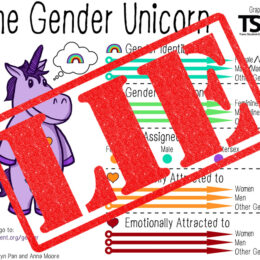Investor’s Business Daily | February 20, 2009
It’s the supporters of embryonic stem cell research who have politicized science. The desperation of a family and the pressure to produce results may have produced a medical tragedy instead.
In the 2006 election, actor Michael J. Fox, who suffers from Parkinson’s, made a commercial for Democrats in which he urged voters to support Senate candidates who supported federal funding for embryonic stem cell research.
As we noted then and do again, ESCR was not the “most promising” avenue of stem cell research. And no, that’s not because of a lack of federal funds, but rather with the difficulties of controlling the embryonic stem cells and what they turn into.
Unfortunately, it’s been almost impossible to have a rational debate about this. ESCR supporters view adult stem cell research as something pushed by pro-lifers whose real target is Roe v. Wade.
Adult stem cells culled from a patient’s body solve the rejection problem of ESCs and have already been used in hundreds of treatments and therapies of patients. But embryonic, or pluripotent, stem cells can’t seem to make it out of the laboratory.
They are called pluripotent because they can develop into any and every type of human tissue. That’s why some scientists prefer them. Problem is, they’re hard to control and tend to develop into one of the most primitive and terrifying forms of cancer, a tumor called a teratoma.
In 2006, stem cell researcher Steven Goldman and colleagues at the University of Rochester Medical Center in New York reported in the journal Nature Medicine that human embryonic stem cells injected into rat brains developed into cells that could lead to tumors.
As Princeton professor Robert George, who sat on President Bush’s bioethics panel, told National Review Online, “the tendency of embryonic stem cells to produce tumors makes it unethical to use them in human beings — even in experimental treatments.”
Yet just such an experimental treatment was reported Tuesday in the Public Library of Science’s journal, PLoS Medicine.
The family of an Israeli boy suffering from a lethal genetic brain disease sought a solution in the form of injections of fetal stem cells. The boy had been taken at age 9 to Russia, where he was injected with neural stem cells, from fetuses, that were expected to grow into new and healthy brain cells. The cells were injected into his brain and spinal cord twice more at ages 10 and 12.
Tragically, within a year of the last injection, teratomas developed in the boy’s brain and spinal cord.
. . . more




Recent scientific developments have revealed that stem cells derived from the bone marrow, travel throughout the body, and act to support optimal organ and tissue function. Stem cell enhancers are products that support the natural role of adult stem cells. http://www.phyl247.com phyl247 970-985-4076